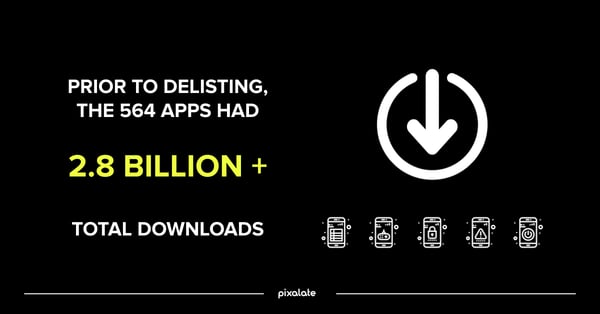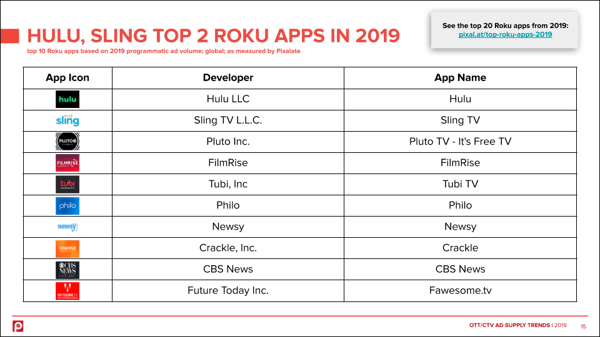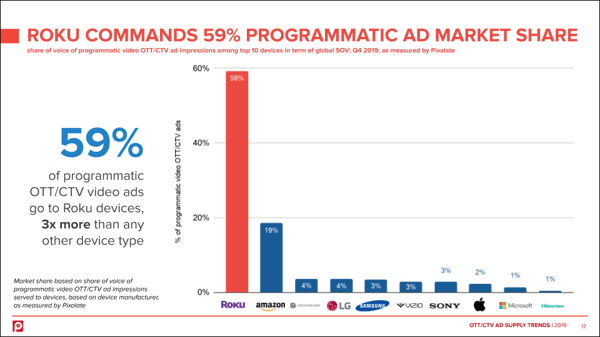
This week's review of ad fraud and quality in the digital advertising space.

Pixalate’s research team has uncovered 564 apps that have characteristics that appear to be consistent with apps removed due to “disruptive” ads. These findings are based on Pixalate’s data and research of apps delisted between February 10-20, 2020, stemming from recent news from BuzzFeed News that Google delisted hundreds of apps for “disruptive” ads.

Pixalate reveals the top 10 Roku apps for programmatic advertising in 2019, based on programmatic ad volume as measured by Pixalate.
Hulu and Sling lead the way, and several news apps also ranked in the top 10.

Roku remains the dominant device type in the surging Connected TV/OTT ecosystem. According to data in Pixalate's State of Connected TV/OTT: 2019 Ad Supply Trends Report, what are the top 10 device types for programmatic OTT/CTV advertising? Roku leads the way with 59% programmatic ad market share.
Learn more in our State of Connected TV/OTT: 2019 Ad Supply Trends Report.

A BuzzFeed News investigation has revealed the apparent source behind over 50 of the 500+ "malicious extensions" recently removed by Google Chrome. The story, per BuzzFeed News, is "a case study in how digital advertising has become a playground for canny operators who amass fortunes by siphoning money out of the digital ad ecosystem."

"[A] popular analytics platform ... has been secretly collecting data from millions of people who have installed popular VPN and ad-blocking apps for Android and iOS," according to new reporting from BuzzFeed News. The apps in question have over 35 million downloads, per the article.
*By entering your email address and clicking Subscribe, you are agreeing to our Terms of Use and Privacy Policy.
These Stories on Weekly Recaps
*By entering your email address and clicking Subscribe, you are agreeing to our Terms of Use and Privacy Policy.

Disclaimer: The content of this page reflects Pixalate’s opinions with respect to the factors that Pixalate believes can be useful to the digital media industry. Any proprietary data shared is grounded in Pixalate’s proprietary technology and analytics, which Pixalate is continuously evaluating and updating. Any references to outside sources should not be construed as endorsements. Pixalate’s opinions are just that - opinion, not facts or guarantees.
Per the MRC, “'Fraud' is not intended to represent fraud as defined in various laws, statutes and ordinances or as conventionally used in U.S. Court or other legal proceedings, but rather a custom definition strictly for advertising measurement purposes. Also per the MRC, “‘Invalid Traffic’ is defined generally as traffic that does not meet certain ad serving quality or completeness criteria, or otherwise does not represent legitimate ad traffic that should be included in measurement counts. Among the reasons why ad traffic may be deemed invalid is it is a result of non-human traffic (spiders, bots, etc.), or activity designed to produce fraudulent traffic.”

